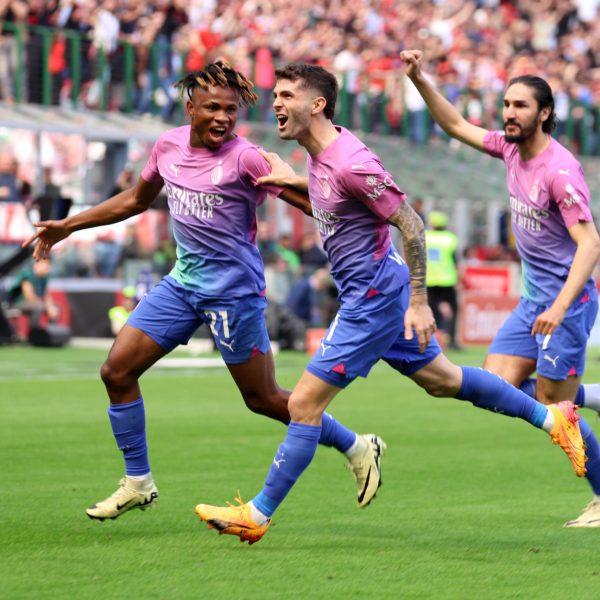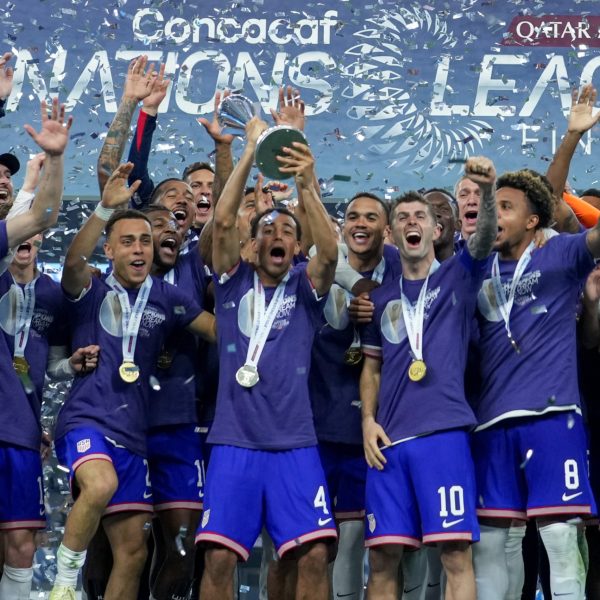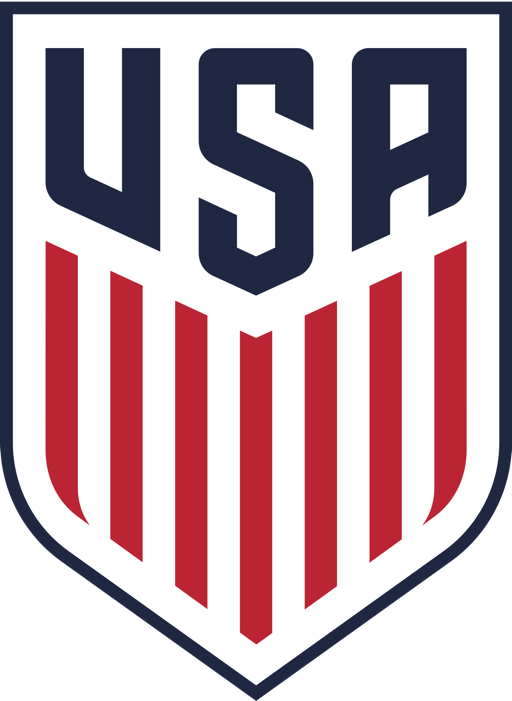Charles Boehm has newly announced US Soccer Federation sporting director Matt Crocker's comments from a media roundtable earlier this week.
US Soccer sporting director Matt Crocker outlines the scope for “the whole ecosystem”
By Charles Boehm – WASHINGTON, DC (Apr 27, 2023) US Soccer Players – US Soccer gave its new sporting director Matt Crocker a mile-a-minute introduction to the nation’s capital and its largest city as his hiring was announced this week. Crocker flew to DC on Monday, held media events there with federation president Cindy Parlow Cone and CEO JT Batson on Tuesday, then caught a train to New York City for a similar schedule there before returning to his current employer, Southampton FC.
Before he helped Southampton survive year after year in the mighty Premier League with the smallest budget in the division, long before he oversaw structural reforms that fueled the English national teams’ return to the global elite, Crocker spent time in the American heartland.
“I was an apprentice at Cardiff City, and one of my coaches just happened to know somebody that was building a coaching indoor center in Little Rock, Arkansas, and was developing a summer camp program called Soccer USA,” he explained in a roundtable with reporters at a downtown DC hotel. “I had the opportunity to come across, to start with for six weeks, and then I just kept going back in the summers and coaching. So it was my first coaching experience.”
For a self-described “little snotty-nosed kid from Wales,” those were irresistible adventures, ones he later continued in Kansas. “Six of us would jump in the van, and we’d drive wherever they told us to on a Monday, coach all week, come back on the Friday night, play an indoor showcase game, play an 11-v-11 game on Saturday and travel again on Sunday. I mean, what a perfect life at 17, 18, to be able to go and do that in a country like America,” said Crocker, who even mentioned by name two captains of the U-12 teams he coached back in those days. “I learned how to coach grassroots and camp soccer in America. And I got my passion for coaching.”
He would return to Great Britain as his career took flight on that side of the Atlantic. Yet those early Stateside experiences could prove influential as he relocates to Chicago and delves into his new job in the months ahead.
“To have initially the call to see if it was something that I would be interested in,” said Crocker on Tuesday, “I had to pinch myself. When you think of the size and the scope of the program, the opportunities, the tournaments that are coming up both on the men’s and the women’s fronts … it was the only thing that I was interested in.”
Crocker’s work starts with the task of identifying the next USMNT head coach, which he suggested might be completed before he officially begins his full-time duties on August 2.
“We need the right leader,” he said. “We need the right head coach to come in and give the players ownership and responsibility to build a really, really strong culture or to continue to develop that really, really strong culture. Coaching internationally is very, very different to working every day on the field with a club team. And some of the unique skill sets around being able to contribute to other things supporting players when they’re in their clubs, building those strong club relationships, MLS relationships, etc., making sure things like collaboration and cooperation around player release are going to be a fundamental part of the role going forward as well…. Now it’s about us making sure we nail the process.”
The full scope of Crocker’s vision runs even broader than that. Towards “the whole ecosystem,” as he put it. He’s eager to embrace the federation’s mission statement “to make soccer, in all its forms, the preeminent sport in the United States,” despite its enormity. Perhaps even because of it.
“We’ve got a big part to play in coach education as well,” he said, “not just from a professional environment, but also the grassroots environment, that we give the children that we want to fall in love with the game the right experiences from the very, very beginning. Because we have a huge responsibility: the first experiences where children either fall in love with the game or they fall out of love with the game.”
As Crocker sees it, his contribution to success for the national teams will not be about implementing his philosophy or preferred style of play so much as finding and facilitating those who can do so at the highest possible level. He alluded to the concept of “85/15,” where organizations or groups who are 85% in agreement but need guidance to navigate the other 15% where consensus is more difficult.
“Some people use the term ‘my playbook’ or ‘my culture’ – it’s not mine,” he said. “I just think I have got a skill set that enables people to come together, that can coordinate some ideas. And I believe I’ve got a skill set that can make things simple for players and coaches to understand. … I’m not the guy that has all the tactical ideas. My job is just to get the best out of people, and I think that’s what leadership is about.”
Crocker laid out a scenario in which the USMNT boss is something like a coordinator or a chief of staff in addition to the senior team’s coach.
Some of the stuff that I know that already goes on, I’m keen to really grow and develop, because I’ve seen it firsthand where you build your philosophy, your DNA, your way of working, and then you share it with the MLS clubs, and you create real collaboration,” he said. “Not every coach will agree with the style of play, with maybe some of your coaching methods, because there’s so much opinion in the game. But just to have an environment where you share stuff on a regular basis.”
On a North American landscape historically prone to factions and breakaways, Crocker envisions a future with sweeping coordination and “cross-pollination” from one end of the pyramid to the other.
“For example, if you imagine the Under-20s World Cup, so in a preparation event, when we might be playing against Mexico, to have the opportunity for the head coaches, on gameday-1, to jump on a Zoom call or invite into the camp all of the coaches or a significant amount of coaches that coach those players from the clubs,” he explained. “To go, ‘this is what we’re doing with the players. This is what our camps look like. These are the objectives of the camp, this is how we’re going to set the team up. This is when we might think of the game plan and the things we’re going to do.’ I think all of that sharing of ideas is a great opportunity of collaboration on both sides.”
There was a similar spirit in his praise for his predecessor Earnie Stewart and coaches Gregg Berhalter and Anthony Hudson and the foundation they laid. Crocker vows to build on that base rather than start all over again.
“It’s not a ‘lift and shift.’ I need to come in, listen, learn, understand, and then see where there’s some potential to add some value,” he said. “But I already know there’s some great work going on. And my job is to try and identify that, nourish, support it and grow it.”
Charles Boehm is a Washington, DC-based writer and the editor of The Soccer Wire. Contact him at:cboehm@thesoccerwire.com. Follow him on Twitter @cboehm.







